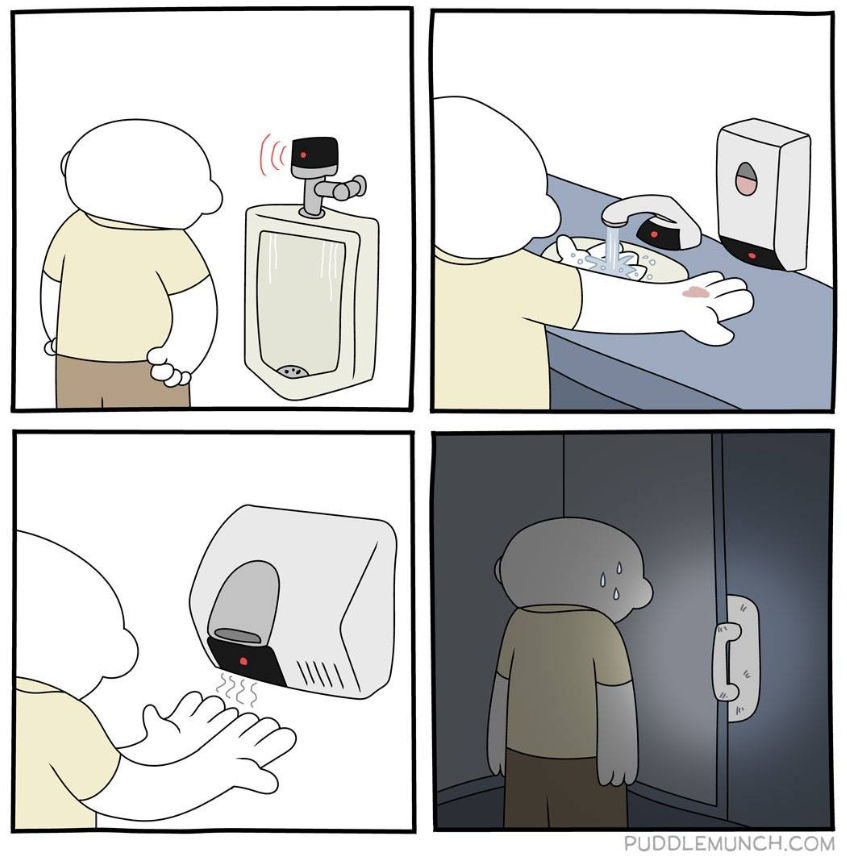this post was submitted on 10 Jan 2024
1398 points (98.5% liked)
Comic Strips
12374 readers
2945 users here now
Comic Strips is a community for those who love comic stories.
The rules are simple:
- The post can be a single image, an image gallery, or a link to a specific comic hosted on another site (the author's website, for instance).
- The comic must be a complete story.
- If it is an external link, it must be to a specific story, not to the root of the site.
- You may post comics from others or your own.
- If you are posting a comic of your own, a maximum of one per week is allowed (I know, your comics are great, but this rule helps avoid spam).
- The comic can be in any language, but if it's not in English, OP must include an English translation in the post's 'body' field (note: you don't need to select a specific language when posting a comic).
- Politeness.
- Adult content is not allowed. This community aims to be fun for people of all ages.
Web of links
- [email protected]: "I use Arch btw"
- [email protected]: memes (you don't say!)
founded 1 year ago
MODERATORS
you are viewing a single comment's thread
view the rest of the comments
view the rest of the comments

Outside of antibacterial or germicidal soaps, the cleaning action of washing with soap is 100% mechanical. Soap molecules are asymmetrical and have one side that’s hydrophilic and one side that’s hydrophobic which, when used with water, creates a nifty mechanism that picks up crap on one side and catches a ride on the water molecules with the other side.
Isn't basic soap also destroying the lipidic membrane of most bacteria? It doesn't need to be specific antibacterial soap for that.
Regular soap does also kill bacteria with those hydrophobic sides of its molecules by breaking a bacteria or virus’ lipid membrane. I would argue this still a mechanical process though. Antibacterial soaps use a specific chemical, Triclosan, that binds with enzymes within the bacteria that prevent it from reproducing.